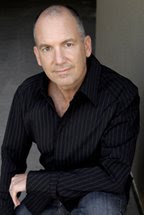Let’s play a game. Name the source of each of the following quotes. (Answers at the end).
| “Contrary to claims by gay activists, homosexually active persons as a group appear to be less psychologically healthy than the general population.”1 "If the Supreme Court says that you have the right to consensual (gay) sex within your home, then you have the right to bigamy, you have the right to polygamy, you have the right to incest, you have the right to adultery. You have the right to anything."2 “The homosexual inclination is … 'objectively disordered' and homosexual practices are 'sins gravely contrary to chastity’.”3 ”God hates fags”4 |
If this game gets under your skin, join the club.
All four quotes were made within the past five years, are highly visible in the media and fuel the fires of hate crimes everywhere.
And they really tick me off!
I know, as a clinical psychologist, I shouldn’t be upset by statements like this. I should be able to laugh heartily and analyze the speaker’s true feelings. After all, I went to school all those years to fix myself first, didn’t I?
Well, if I’m being brutally honest, YES, I did wander into the psychology classes with some pretty dysfunctional history in my background, some related to my being gay in a small Southern town and some related to just plain ol’ regular dysfunction.
I guess I stayed in those classes because some of it actually made sense to me. And some of it helped me.
The little town where I was raised was super conservative, the center of the Bible belt and home of the National Dairy Goat Association. Much of my world back then was about “right” and “wrong”. My parents were devout fundamentalists and we attended church three times a week, or more if it was time for revival.
By the time I was 13, I knew that homosexuals were “bad” and that whatever feelings I had about other boys were forbidden. I learned to hide who I really was and to pretend that I felt something for girls that I didn’t. Life in that small town was about survival.
What I didn’t realize was happening though, was that I was being conditioned all those years. I was bombarded with messages- some overt, some subliminal- about myself as a gay man, and most, if not all, were horribly negative.
In my part of the world, anti-gay sentiments were open, obvious and even righteous. There was only Anita Bryant and Jerry Falwell talking about being gay. There was no Ellen, no Will and Grace, and no Internet.
Thank goodness I escaped.
During my training, amidst the classes on Freudian theory and Jungian archetypes, I heard about a radically different form of therapy that caught my attention, known as Cognitive Behavioral Therapy (also known as CBT). While exploring the meaning of dreams and early childhood traumas was certainly interesting, I found the simplicity and immediate power of CBT personally and professionally exciting.
The central tenant of CBT is basic. Recognize problematic thinking and change it.
I learned that those negative messages from my childhood about my worth and my core identity, continued to affect my choices even as an out and proud adult. I realized that for many of my lesbian and gay clients, they too carried the remnants of earlier struggles, almost like they were programmed to self-sabotage. Hearing a publicized statement like one of the examples above could be enough for some of them to start a spiral of negativity, despair and self-destruction.
Coming out, it seemed, was only the first step in the journey to a healthy life. Learning to recognize the leftover anti-gay messages that we’ve internalized and then stopping them dead in their tracks was a powerful way to feel better and stop undermining our health and goals.
My memories of those days in the South, and the healing that occurred after I left, prompted me to write Loving Ourselves: The Gay and Lesbian Guide to Self-Esteem, to share what I’ve learned, both personally and professionally with the rest of the LGBTQ world out there. Yet beyond changing your thinking, this book is also about cultivating a better, more loving relationship with the real you.
The evidence is clear. LGBTQ young people are still significantly more likely to feel bad about themselves, to use drugs and alcohol excessively, and to be subjected to harassment and violence than their straight peers. And it’s also clear that homophobia remains strong and promoted by powerful voices in high places.
Learning to love yourself means learning to regularly counteract negative messages wherever you find them, whether from your past or in the headlines of Fox News and then replacing them with new messages of genuine affection, respect and hope.
Loving Ourselves is my way of sharing the very best parts of the journeys of my clients and myself towards healthy self-esteem and providing a starting path for readers who want to go there.
Kimeron Hardin, Ph.D.
Answers:
1-James Dobson, Founder, Focus on the Family
2-Rick Santorum, former US Senator from Pennsylvania
3-Benedict XVI, Pope, Roman Catholic Church
4- Fred Phelps, Preacher, Westboro Baptist Church, Topeka, KS
For those of you in the SF Bay Area, I will be doing a reading/booksigning for Loving Ourselves at A Different Light Bookstore on Castro Street in SF on January 26th at 7:30 pm. Join me if you can!













No comments:
Post a Comment